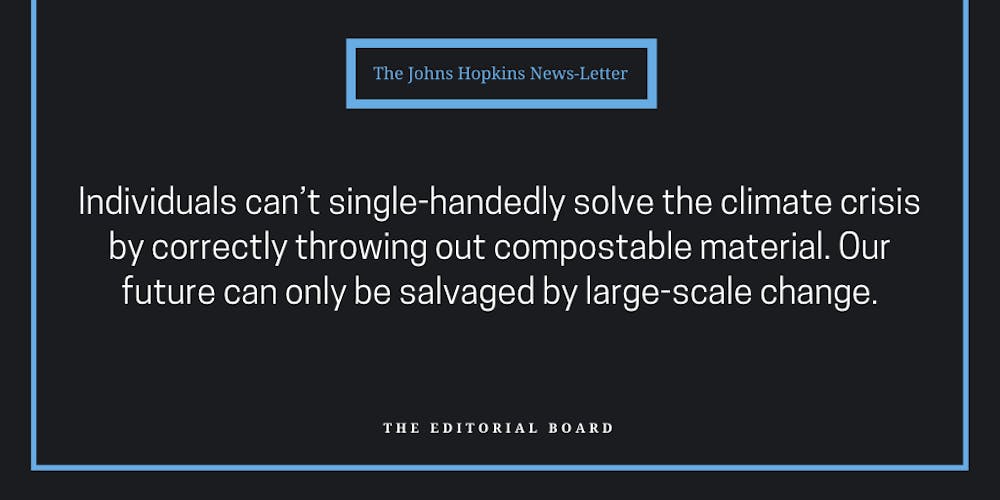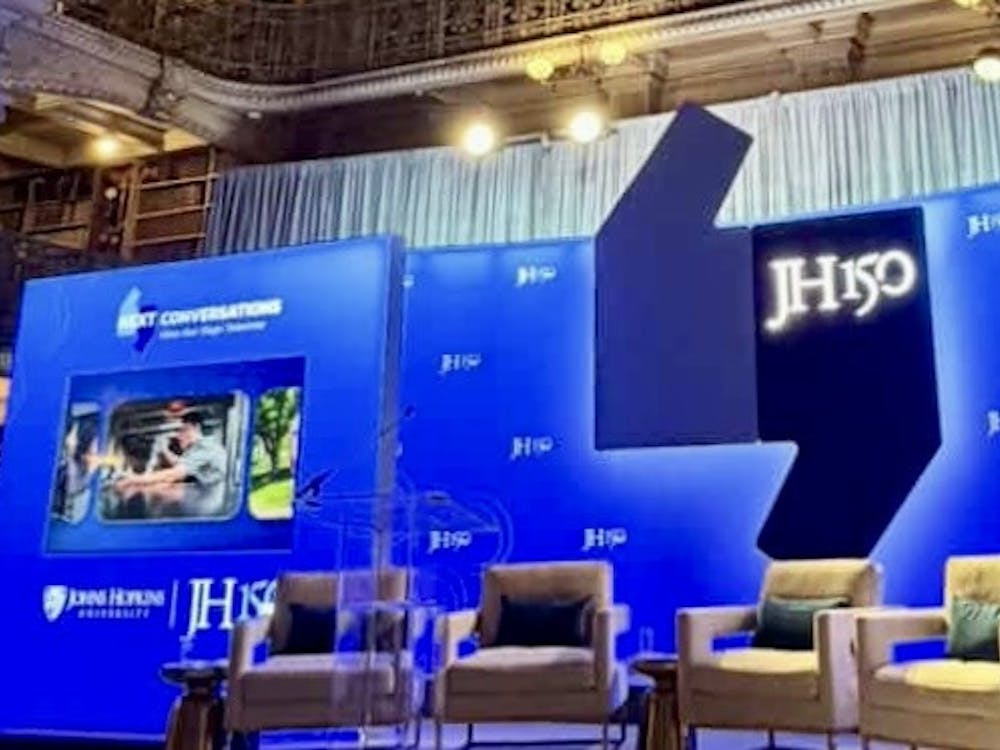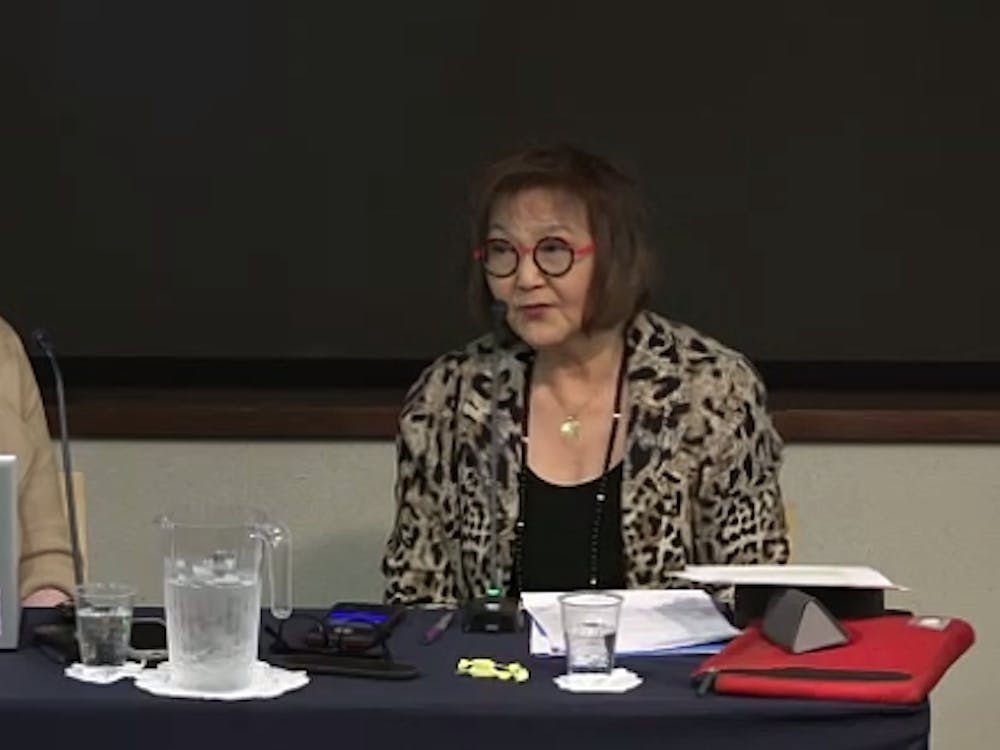We have a problem with trash on campus.
And the University knows this. In response to a 2018 audit of sustainability in dining facilities, the University added extra compost bins and signage on how to properly dispose of waste. However, supply chain issues due to COVID-19 have created new challenges – particularly with food packaging.
In its 2009 report, The President's Task Force on Climate Change envisioned a “truly sustainable university where all resources consumed are continuously recycled or regenerated.” Currently, only about 30% of our waste is actually diverted from landfill or incineration. Hopkins must facilitate the culture of sustainability it calls for itself.
We are appalled that $400 million of the University’s endowment is invested in fossil fuels and reiterate the call for divestment we have been making for years. We stand with Refuel Our Future in their call for divestment from all fossil fuels, and we commend the climate activists at Harvard, Cornell, Boston College and other institutions who have done the same.
Unfortunately, only the Board of Trustees can decide if the University divests. That doesn’t mean students can’t embrace sustainability. Proper waste disposal is something students can take part in. Without standard guidelines on how to dispose of our trash, however, it becomes hard to do even the bare minimum for the environment.
The University easily posted COVID-19 capacity posters and water fountain warnings when corralling students back to campus last spring. At the very least, providing signage with clear recycling instructions for students would enable them to make individual changes to promote sustainability on campus.
But promoting sustainability cannot be exclusive to just the University’s campuses. Currently, Baltimore lacks city-wide composting. Since 25% of Baltimore's waste consists of food scraps, an established composting program would be a step towards decreasing the amount of waste that the city produces.
The Department of Public Works introduced a Food Scrap Drop-Off Pilot Program this past summer, allowing Baltimoreans to bring food scraps to various composting locations. Supporting the expansion and continuation of this initiative would be a tangible way for Hopkins to support sustainability beyond its campuses. After all, isn’t that the role of an “anchor institution?”
We do note the University’s progress in making campus more environmentally friendly. In 2009, Hopkins promised to decrease carbon emissions by 51% by 2025. A decade later, the University began shifting to solar power in order to reach this benchmark. Hopkins now projects to achieve its emissions goal by 2022, three years ahead of schedule.
But Hopkins can still do so much more. Individuals can’t single-handedly solve the climate crisis by correctly throwing out compostable material. Our future can only be salvaged by large-scale change. As an institution, Hopkins has a responsibility to the greater world to act. And fast.





